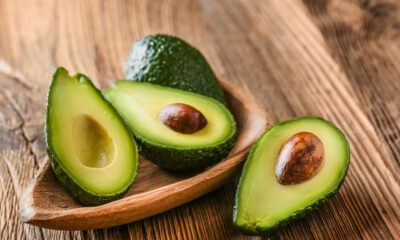Health
The Top 10 Fruits To Eat Weekly For Good Health

Eating fruits on a regular basis is one of the simplest methods to maintain good health and energy. They include vital vitamins, minerals, and antioxidants that your body requires to function properly.
Whether you want to enhance your immune system, improve your skin, or simply feel better overall, including the correct fruits in your weekly diet can make a big difference. Let’s look at the top ten fruits to eat weekly for excellent health. These fruits are not only delicious, but also extremely nutritious for your body.
Table Of Contents
1. Apples.
2. Bananas
3. Blueberries
4. Oranges
5. Strawberries.
6. Grapes
7. Avocados
8. Pineapple
9. Mangoes
10. Kiwis
11. Conclusion
1. Apple Fruits.
“An apple a day keeps the doctor away.” You’ve probably heard this saying before, and with good cause. Apples are among the most beneficial fruits for your health. They are abundant in fiber, especially if you eat the peel, which is beneficial to your digestion. Apples are also high in Vitamin C, which helps your body stay healthy and fight infections.

Nutrients in apples
- Vitamin C boosts the immune system.
- Fiber promotes intestinal health.
- Antioxidants protect your cells from harm.
How To Eat Apples
You can eat apples in a variety of ways. Eat them raw, add them to salads, or bake them for a healthy dessert. To maintain good health, eat an apple at least a couple times every week.
2) Banana fruits
Bananas are an excellent source of energy. They are high in potassium, which helps your muscles and nerves function properly. If you’re feeling tired or need a quick energy boost, bananas are your go-to fruit.

Nutrients in bananas.
- Potassium: Promotes heart health and muscular function.
- Vitamin B6 promotes brain development and function.
- Vitamin C strengthens the immune system.
How To Eat Bananas:
Bananas are quite easy to eat. You just need to peel and eat! They can also be sliced and added to porridge, blended into smoothies, or frozen. Include bananas in your diet many times per week to maintain your energy levels.
3. Blueberries
Blueberries are small yet mighty in terms of health benefits. They are one of the greatest fruits for health because they are high in antioxidants, which protect the body from free radicals. Blueberries are also good for brain health and can help with memory.
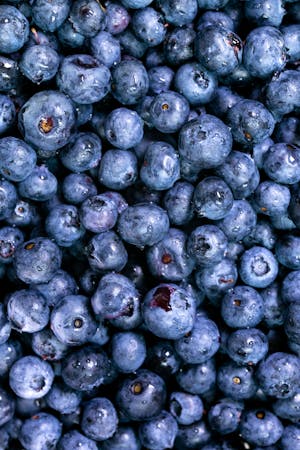
Nutrients in Blueberries
- Antioxidants protect your cells from harm.
- Vitamin C boosts the immune system.
- Fiber improves digestion and keeps you full.
How To Eat Blueberries:
Blueberries are excellent on their own, but you can also mix them into yogurt, cereal, or smoothies. Eat blueberries many times per week to reap the full benefits of this delicious fruit.
4) Oranges
Oranges are well-known for being high in Vitamin C, which is essential for a healthy immune system. But that’s not all: they’re high in fiber and other vitamins that help keep your body healthy. Eating oranges on a daily basis can keep you hydrated and energized.

Nutrients in Orange
- Vitamin C: Improves immune function and skin health.
- Fiber promotes intestinal health.
- Folate is essential for cell function and tissue growth.
How To Eat Oranges:
Oranges are both refreshing and easy to eat. Simply peel and enjoy! You can also consume freshly squeezed orange juice. Aim to consume an orange or a glass of orange juice per week.
5. Strawberries
Strawberries are high in vitamins and antioxidants, in addition to being delicious. They are particularly abundant in Vitamin C and manganese, both of which aid in bone healing and maintenance. Furthermore, their natural sweetness makes them a favorite with many.

Nutrients in Strawberries
- Vitamin C boosts the immune system and improves skin health.
- Manganese promotes bone health and metabolism.
- Fiber: Aids digestion and promotes good weight management.
How To Eat Strawberries:
Strawberries can be eaten fresh, blended into smoothies, or added to desserts. They also work well in salads or as a topping for yogurt. Eat strawberries frequently to appreciate their sweetness and health advantages.
6. Grapes:
A beneficial fruit for heart health. They include antioxidants like as resveratrol, which protects the heart and lowers blood pressure. Grapes are extremely hydrated, making them an excellent snack at any time of day.

Nutrients in Grape
- Resveratrol promotes heart health.
- Vitamin C boosts the immune system.
- Vitamin K is essential for blood clotting and bone health.
How To Eat Grapes:
Grapes are ideal for eating straight out of the refrigerator. You may also mix them into salads or freeze them for a pleasant taste. Eating grapes on a regular basis will benefit your heart and overall wellness.
7. Avocados
Avocados are unique because they are high in healthful fats. These fats are beneficial to your heart and can help lower harmful cholesterol levels. Avocados are high in fiber, potassium, and vitamins, making them one of the healthiest fruits available.
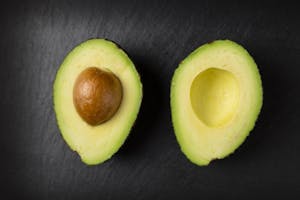
Avocado Nutrients:
- Healthy fats promote heart health.
- Potassium: Helps regulate blood pressure.
- Vitamin E promotes skin health.
How To Eat Avocados:
Avocados can be spread fresh, added to salads, or blended into smoothies. Incorporate avocados into your diet a couple times per week to reap the benefits of healthy fats.
8) Pineapple
Pineapple is more than simply a tropical pleasure; it also aids digestion. It contains bromelain, an enzyme that breaks down proteins and facilitates digestion. Pineapple is particularly high in Vitamin C and antioxidants, making it an excellent choice for a weekly fruit intake.

Nutrients in pineapple
- Bromelain: improves digestion and lowers inflammation.
- Vitamin C: boosts the immune system and improves skin health.
- Manganese: promotes bone health and metabolism.
How to Eat Pineapples:
Pineapple is great by itself or in fruit salads. You may also mix it into smoothies. To maintain good digestion, include pineapple in your diet at least once a week.
9. Mangoes
Mangoes are not only sweet and juicy, but also high in nutrients that help your immune system. They are high in Vitamin A, which is necessary for eye health, and Vitamin C, which strengthens your immune system.

Nutrients in mangoes
- Vitamin A: promotes eye health.
- Vitamin C: boosts your immune system.
- Fiber: aids digestion and regulates blood sugar levels.
How To Eat Mangoes:
Mangoes are excellent when eaten fresh, but they can also be included into smoothies and salads. Eating mangoes on a daily basis can assist to strengthen your immune system and keep your body healthy.
10. Kiwis
Kiwis are small, yet nutrient-dense. They are high in vitamin C, vitamin K, and fiber, making them one of the healthiest fruits available. Kiwis can aid digestion, boost the immune system, and keep your skin looking good.

Nutrients in Kiwis
- Vitamin C: Strengthens your immune system and improves skin health.
- Vitamin K promotes bone health.
- Fiber: Aids digestion and promotes good weight management.
How To Eat Kiwis:
To eat kiwis cut them in half and scoop out the flesh using a spoon. They also work well in fruit salads, smoothies, and as a yogurt topping. Including kiwis in your weekly diet can provide a nutritional boost.
Conclusion
Adding these ten fruits to your weekly diet is an easy and delightful method to improve your health. From grapes’ heart-healthy benefits to papayas’ digestive assistance, each of these fruits has its own unique benefit that your body will appreciate. Remember that staying healthy does not have to be complicated—it can be as simple as eating a piece of fruit every day.
At Xclusivstarsng, we are dedicated to providing you with not only the latest news, but also insights and suggestions on how to stay healthy. So, make these fruits a regular part of your diet and watch your body reap the benefits.
If you found this useful, visit our website for other ideas, methods, and insights on how to live your best life. We also provide the most recent updates on what Nigerian celebs are bringing. Stay up-to-date on health, Nigerian celebrities, and movie reviews to maintain your physical and mental well-being.
Health
Disordered Eating Vs. Eating Disorder: Experts Explain The Differences And When To Seek Help

Disordered eating and clinical eating disorders are not interchangeable. Disordered eating refers to irregular or emotionally influenced habits around food: chronic dieting, skipping meals, rigid food rules, occasional binge episodes or persistent preoccupation with calories, weight or body shape. These habits may shift, but when repeated over time they often point to growing vulnerability.
Clinical eating disorders, by contrast, are diagnosed mental-health or medical conditions marked by persistent, patterned behaviours that impair physical health, mental wellbeing or daily functioning. Conditions such as anorexia nervosa, bulimia nervosa, binge‑eating disorder and other specified feeding or eating disorders fall into this category.

Image: Google
Evidence from Nigerian research confirms that disordered eating attitudes and risk for eating disorders are present among young adults and adolescents. In a study of more than 1,050 undergraduates from two higher‑education institutions in Lagos, roughly 16 percent scored positive on the EAT‑26 screening tool for disordered eating attitudes.
At a university in Ile‑Ife, a survey of female undergraduates found that 17.1 percent were classified as at high risk for eating disorders, based on the same screening instrument.
A more recent analysis among female undergraduates in Lagos found a lower prevalence of disordered eating (about 5 percent). Still, the study flagged a strong association between body-image dissatisfaction, body‑mass index (BMI) and disordered eating attitudes.
Adolescents are not exempt: a survey of 13 to 19-year-olds in Ibadan used screening tools to assess disordered eating behaviours and feeding/eating disorders. Results showed that 28.2 percent exhibited disordered eating behaviours, and a significant portion also met screening criteria for feeding/eating disorders.

Image credit: Google
Clinical, clearly diagnosed cases have also been documented. There’s a recorded instance of a 20-year-old undergraduate at a Nigerian university diagnosed with anorexia nervosa showing that what may start as dieting or food anxiety can escalate into serious health and psychiatric risk.
Because disordered eating and eating disorders exist within the Nigerian context, distinguishing between them matters. Persistent preoccupation with food, weight or body shape; regular dieting, bingeing or purging; emotional distress tied to eating; and disruption of everyday life are all red flags. When those signs persist, seeking professional support whether nutritional counselling, psychological therapy or medical care becomes essential.
Health
The Exercise That Keeps You Younger

If you’ve ever met someone in their fifties who moves like they’re still in their twenties, it’s likely they’ve discovered the simple habit that keeps the body from giving in to age: regular movement.

While fitness trends keep changing, one form of exercise has stayed constant in its benefits: strength training. It’s not about building bulky muscles or chasing a perfect body. It’s about keeping your bones strong, your joints stable, and your metabolism from slowing down. After the age of 30, the body naturally begins to lose muscle each year. That’s why everyday tasks, like climbing stairs or carrying groceries, start to feel heavier. Strength training helps reverse that.

Research supports this claim. People who lift weights or engage in resistance exercises have lower risks of diabetes, heart disease, and cognitive decline. But beyond the science, it’s about how it makes you feel. Nigerians juggling work, traffic, and family life know how draining each day can be. Even short sessions of body-weight squats, lunges, or push-ups a few times a week can recharge you better than most expensive wellness fads.

It also boosts your mood. Physical activity releases chemicals that help clear mental fog and lift your energy. It’s your body’s way of proving it still has strength to give.
You don’t need a gym to start. A mat, a pair of dumbbells, or even two water bottles will do. The goal is to stay consistent, to keep your body active enough to stay responsive.
Each push, lift, or stretch is a reminder that staying young isn’t about denying age; it’s about moving through it with strength.
Health
Which Fruits Are Highest in Calcium?

When it comes to calcium, most people immediately think of milk, cheese, or yoghurt. But if you don’t consume dairy or just want variety, certain fruits can help fill the gap. While they won’t match dairy in calcium content, these fruits can contribute meaningfully to your daily needs.
Why Calcium Matters
Calcium isn’t just for strong bones and teeth. It also keeps muscles working properly, supports nerve function, and helps maintain a steady heartbeat. A consistent intake is essential at every stage of life, especially for growing children, women over 30, and older adults who face higher risks of bone loss. Here are some fruits that deliver calcium
Oranges

Oranges are widely available in Nigeria and more than just a source of vitamin C. A medium-sized orange contains around 60 mg of calcium, and fresh juice, particularly fortified versions, can provide even more.
Figs (Fresh and Dried)
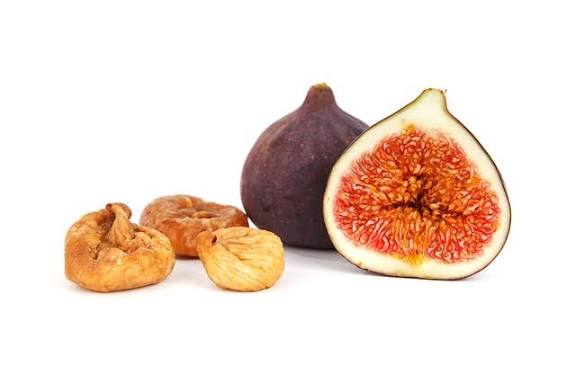
Figs are among the top fruit sources of calcium. Five fresh figs offer roughly 90 mg, while half a cup of dried figs can reach about 120 mg. They also provide fiber and potassium, making them a wholesome addition to snacks or breakfast bowls.
Blackcurrants
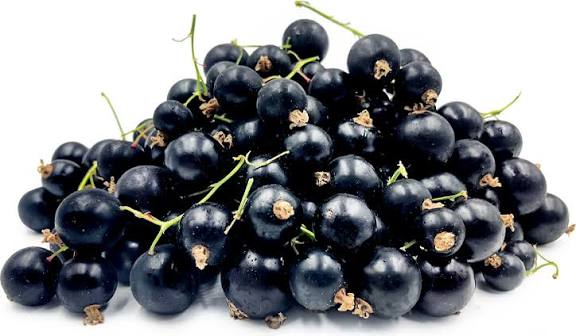
Though less common locally, blackcurrants are worth noting. 100 grams supply about 55 mg of calcium and antioxidants that support overall health.
Kiwis
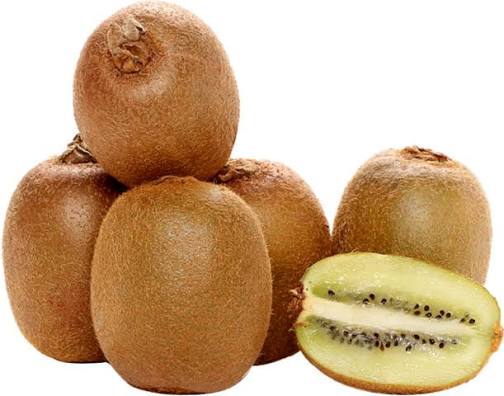
A cup of sliced kiwis contains approximately 35 mg of calcium. They also provide vitamin C, which helps the body absorb calcium from other foods.
Mulberries
Mulberries contain roughly 39 mg of calcium per 100 grams. They are also rich in iron and vitamin K, both of which work alongside calcium to maintain strong bones.
Papaya (Pawpaw)

Papaya is a staple in Nigerian markets and households. 100 grams provides about 30 mg of calcium. It’s refreshing on its own or paired with a splash of lime for breakfast or snacks.
Tangerines

Tangerines contain around 37 mg of calcium each. They are easy to carry, naturally sweet, and a convenient way to get a small calcium boost between meals.
Making Fruits Work for You
Fruits alone won’t meet your daily calcium requirement. However, when combined with vegetables, beans, or fish, they help you get closer without relying solely on dairy. For Nigerians, enjoying seasonal fruits like pawpaw, oranges, or tangerines is a simple and tasty way to support bone health.
-

 Beauty5 months ago
Beauty5 months agoIs There Anything Like Too Many Accessories?
-

 Celebrity News5 months ago
Celebrity News5 months agoToke Makinwa Shares Graceful Pregnancy Reveal
-

 Movies5 months ago
Movies5 months agoTrailer Review: Highest to Lowest
-

 Sex & Relashionships4 months ago
Sex & Relashionships4 months agoSigns You Have Abandonment Issue and How to Heal
-

 Music5 months ago
Music5 months agoKokopee Drops EP ‘All I Need It’s Kokopee
-

 Celebrity News5 months ago
Celebrity News5 months agoAsake Shows off New Hair on Stage
-

 Models5 months ago
Models5 months agoDorothy Anador Celebrates Her Best Self in Birthday Photoshoot
-

 Movies4 months ago
Movies4 months agoMovie Review: Task Official Trailer
-

 Top Xclusiv4 months ago
Top Xclusiv4 months agoItalian Designer Giorgio Armani Dies at 91
-

 Music4 months ago
Music4 months agoAyra Starr – Hot Body Video Review







